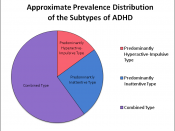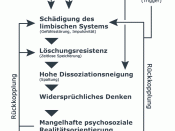(A paper on the BOSCOT Trials--A form of CBT, Dialectical Behavior Therapy vs. Treatment as Usual) Includes Abstract AbstractThis is the outcome of a study in which 106 participants who met the diagnostic criteria for Borderline Personality Disorder, or BPD, were randomized into two groups. The first group, or the control group, received treatment as usual (TAU). The second group received treatment as usual along with a form of cognitive behavioral therapy known as dialectical behavioral therapy. The study was conducted over the course of two years; the first year was for treatment and the second year for follow-up. The primary research hypothesis was that the cognitive behavioral therapy group would have a decreased amount of suicidal acts, which proved to be true. Also that this group would have less accident and emergency room visits. This could not be proven. The secondary research hypothesis was that the overall quality of life would be improved for these patients and this was true for some aspects such as changing dysfunctional core beliefs and state anxiety, yet no improvement was gained in overall depression.
IntroductionBorderline Personality Disorder, or BPD, is a serious mental illness, which affects up to 2% of Americans over the age of 18 (NIMH, 2008). It is characterized by pervasive instability in moods, interpersonal relationships, self-image and behavior. Those who are diagnosed with borderline personality disorder, mostly young women, suffer from intense bouts of anger, depression, and anxiety. These symptoms may last for hours, or at most, a full day. Patients with borderline personality disorder view themselves as fundamentally bad, or unworthy. These distortions in cognitive processes and self awareness can lead to drastic changes in values, belief systems, careers, friends, gender identity, and long term goals. In some cases, these maladaptive thoughts can lead to other disorders such as;...


